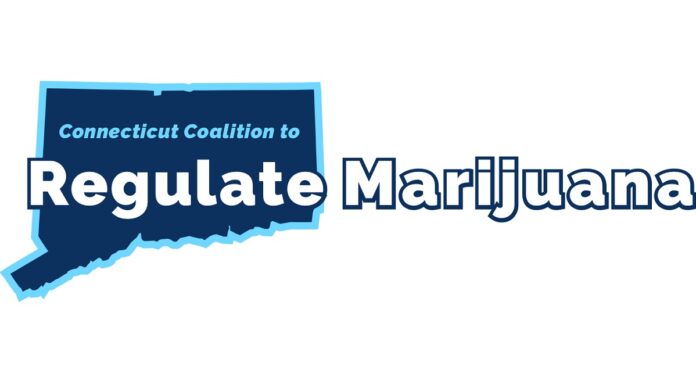STORRS, Conn. – “Legalization will generate significant job creation, strong growth in GDP, and hundreds of millions in new tax revenues.” That is the conclusion drawn by the Connecticut Center for Economic Analysis (CCEA) in its new report analyzing the economic outcome of cannabis legalization in Connecticut. The study projects that the state’s GDP would rise between $953 million and $1.7 billion in the fifth of year of sales. “Legalizing cannabis now would have tremendous benefits for Connecticut, offering a path to stronger economic recovery,” noted Professor Fred Carstensen of CCEA, who conducted the study.
Connecticut can anticipate more than 17,000 new and preserved jobs as a result of legalizing cannabis, with more than 10,000 of them in the next three years. Over the first five years of sales, legalization will also bring $784 to $952 million in new tax revenue for the state and $71 million in cannabis taxes for localities. In a single year — the fifth year of sales — legalization would result in $188 to $223 million in cannabis tax revenue for the state and $21.4 million for localities. The full report is available at mpp.org/CCEA.
“It is now more clear than ever that legalizing cannabis will provide needed opportunity for communities of color who are ready, willing, and able to thrive in this industry if only the Connecticut Legislature would allow us to do so,” said Jason Ortiz, president of the Minority Cannabis Business Association (MCBA).
The study looked at two proposed tax regimes and scenarios for how revenue would be managed by the state and found strong job and GDP growth projections in either scenario. The estimates are conservative. Quickly licensing enough stores and supply statewide to meet demand would increase revenues directly. And, if Connecticut legalizes cannabis before New York and Rhode Island, it can expect significantly more jobs, revenue, and economic growth. UFCW President Ron Petronella responded to the findings, saying that, “Connecticut residents need good-paying jobs now more than ever – legalization is a clear path to these jobs for our union members and for all state residents.”
Perhaps most importantly, the economic benefits of legalization would provide the state with a way to counteract some of the effects of the COVID-19 pandemic. “This report serves as a reminder of a missed opportunity to implement a well regulated legal cannabis system that provides the state a new and stable source of revenue,” noted Rep. Jason Rojas, chair of the Finance, Revenue and Bonding Committee.
About Connecticut Coalition to Regulate Marijuana
The Connecticut Coalition to Regulate Marijuana is a coalition of citizens, organizations, and community leaders working to end marijuana prohibition in Connecticut and replace it with a system in which marijuana is regulated and taxed similarly to alcohol. For more information, visit https://www.RegulateCT.org











